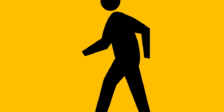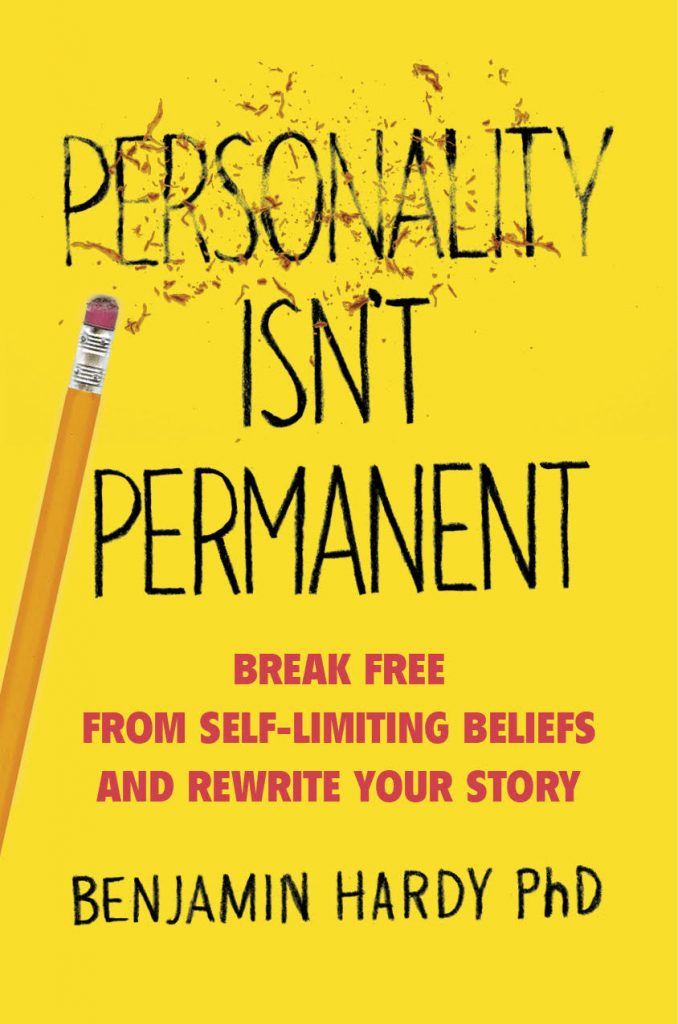As a subscriber to Dr. Benjamin Hardy’s newsletter, I was given the opportunity to get an advance copy of his latest book, Personality isn’t Permanent, in order to review it. It’s available from Penguin Random House now, and you can get the first chapter for free here.
And do I recommend you click those links? Yes. Yes, I do. Here’s why:
My whole life, I’ve been an extrovert. People have always referred to me as one, and I’ve enthusiastically embraced the label and the implications that come with it. Every time I take the Myers-Briggs Type Indicator test, I end up as an ENFP/J (Teacher/Champion).
I’ve noticed, over the last several years, that I’ve become less extroverted—but still an extrovert. But then, a few weeks into stay-at-home orders due to COVID-19, I had an epiphany: I’m an introvert. While some of my friends were spending all day and night on Facebook Messenger and Zoom calls, happy hours, and dance parties, I was completely satisfied to have the occasional virtual connection but mostly work on projects, garden, read, and watch TV.
And then, when I read Hardy’s book, I had another epiphany: personality isn’t permanent.
The book posits that “your personality is the by-product of other things, such as your identity, behaviors, and environment,” and that “personality is dynamic and ever-changing, largely based on the roles you play and the situations in which you find yourself.”
Bingo.
One thing my husband and I have noticed during the pandemic is the relative ease with which we’ve navigated the stay-at-home order. Yes, we have each other and our dogs, which I would wager make things A LOT easier than if we were living alone, but there’s also the fact that we believe that staying home is the best thing we can do to flatten the curve of the virus. Since the current situation is dictating somewhat reclusive behavior for my health, for others’, and for the community at-large, my behaviors and attitudes—or, my personality—adjusted so that I can play the role of an introvert…at least for now. And my personality continuously accommodates the contexts I’m in.
And that’s just one takeaway from the book.
As I was reading, I took notes so that I could write this review more easily, but they turned into notes for me and my life instead of just this review. There are so many inspirational and thought-provoking messages and stories in this book—like finding inspiration through action and not the other way around—it’s hard not to discover something that will strike a chord.
The book has some exercises to help you reflect, and Hardy sprinkles in practical tips like going to bed earlier so as not set yourself up for the inevitable willpower failure that tends to happen late at night, daily journaling (or rage journaling, which I found more appealing), making vision boards, volunteering, donating money, fasting, and praying.
If those last three practices, made you raise your eyebrows, you’re not alone. There are religious themes throughout the science-based book. There are mentions of mission trips, God, prayer, and tithing. While I am not a religious person, I was not bothered by these themes, as they didn’t seem prescriptive and they didn’t take away from the book’s main message.
Hardy shares a lot about his difficult and traumatic past, which I didn’t know about from reading his newsletter and a handful of his many Medium articles. It humanized his voice in a way that your standard psychology-heavy self-help book probably couldn’t achieve. That said, there are several instances that fail to mention societal circumstances that could (and do) tamper success for many individuals, despite a sincere, dedicated effort to improve themselves and their lives. For example, in a discussion about confidence, Hardy writes, “Your job and income level are based on your confidence. Your friends are based on your confidence. How you dress is based on your confidence.” I was disappointed by this privileged, verging on bootstrapping, way of looking at outcomes.
The same critique applies to a section about changing your environment. If you’ve read more than a few of my blog posts or know me personally, you know that I am a huge fan of making changes to your environment in order to facilitate positive habit change. But there’s no acknowledgement of injustices in systemic or institutional environments that can hinder or hurt an individual’s journey toward self-actualization.
Don’t get me wrong: the messages in this book are incredibly inspirational. And maybe it’s the genre; it’s self-help, not society-help, after all.
So, if you feel like your fate has already been decided and your options are limited because you’re an INTJ/Enneagram 2/Hufflepuff, read this book.
If you didn’t like who you were in high school—or even last year—and want to focus on the future, read this book. Heck, if you did like who you used to be but want to focus on the future, read this book.
If you’re looking for a new passion or purpose and are waiting for inspiration to strike, read this book.
If you’re feeling yourself pulled in too many directions because you have too many priorities, read this book.
And report back! I’d love to hear what resonated with you.






One Reply to “Book review: Personality Isn’t Permanent”